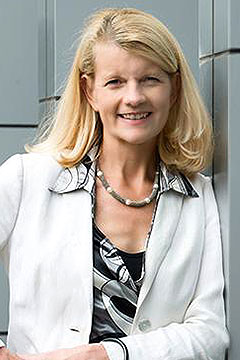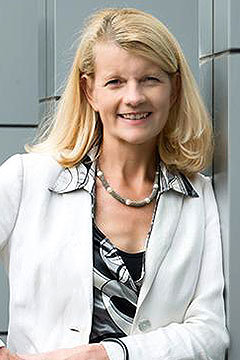
Cultural change: CMS Strategic Automotive Advisors director Yvonne Bowyer says a more inclusive workplace will encourage more women to work in automotive retail.
A SALES force that includes women can generate more sales, but women are often deterred by the culture in automotive retailing, according to a leading automotive retail consultant.
CMS Strategic Automotive Advisors director Yvonne Bowyer told the AAADA National Convention that this means dealerships cannot reach their full sales potential until principals take action to change management policies and encourage changes in what are often male-dominated workplace cultures.
Ms Bowyer said it was time for business to turn around their thinking on why some women are not attracted to certain workplaces.
“I would like us to stop thinking what’s wrong with women and start thinking more about what’s wrong with our workplaces, and why they can’t attract the majority of educated Australians to their advantage,” she said.
Ms Bowyer said many studies had shown that women were great for improving business results.
“They give access to a greater talent pool. A workforce with women can improve performance. We know that a workforce that is as diverse as its customer base has a better ability to react to its customers.
“A heterogeneous workplace provides more agility and innovation. We know that homogeneous work groups are more stuck in traditional ways of working.”
But women are reluctant to enter automotive retailing, she said, and a study from the United States has shown there are a number of reasons why this is so.
“Overwhelmingly, 90 per cent of women surveyed said they were worried about work-life balance, the lack of flexibility around work hours.
“More than a third talked about the environment being unattractive for women, and that goes to the culture inside the company.
“In addition, 44 per cent of women believed there was a lack of advancement opportunities. They also mentioned the pay gap.”
Ms Bowyer said the low representation of women in the dealership workforce could be a reflection of the selection process. She cited the example of a US orchestra that switched to blind auditions, with applicants playing behind a curtain. Female representation rose from five per cent to 30 per cent over 20 years.
In addition, she said it was wiser to interview two candidates at a time so that they can be compared with each other.

“The issue with one candidate is that you are comparing the candidate to the stereotype, and the stereotype is men. You are never going to hire a woman like that.”
Another pitfall in hiring is how the interview is conducted. Ms Bowyer said a structured interview, with a panel of people, was preferable, although dealers had to protect against group think amongst the panel.
“The strategy here is around a scoring system. Ask each applicant the same questions in the same order and score each answer on a one-to-five or a one-to-10 scale. Then, rather than evaluate them for their total score, evaluate them for, say, question one, question two and question three.
“That removes a number of the biases that come into play.”
Ms Bowyer said another reason women may not be applying for dealership jobs could be down to the language used in the advertisement.
“And the ads you are placing now, unbeknownst to you, could either be male coded or female coded or gender neutral. Obviously, if you are looking to attract women, it would be advisable to be looking at words that are female coded. Those might be co-operative, interpersonal, supportive. Masculine coded words are like dominant, competitive, leadership.

Yvonne Bowyer
“Women are very discerning when they look at job ads. They are looking for an environment where that can can fit in. It’s not that they don’t think they can do the job, it’s more about fit.”
Flexibility of work hours was another important consideration for women, according to Ms Bowyer.
“We know that women are the main caretakers at home: family, kids, caring duties, household duties. So flexibility is an important concern for women and, I might add, it’s a concern for men as well.
“The full-time culture in dealerships is uncompromising in its requirements for people to work six days a week from 8am to 6pm. This is despite the conclusive evidence that flexibility is good for business.
“When they have flexible hours, workers are happier, they are more productive, they are more engaged, and they are more loyal. You couldn’t ask for a better recipe.”
Ms Bowyer said the pay gap was also a deterrent for women, although that can be found in many industries. She added that women were often reluctant to ask for appropriate remuneration.
“Women have difficulty bargaining on their own behalves. They don’t want to feel uncomfortable asking for more money. Or not seem like a brat.
“People who actively and successfully negotiate their salary, research has shown, increase their earnings by around seven per cent,” she said.
“Whilst men are promoting themselves, women are quietly beavering away in the background thinking ‘someone will notice the great work I am doing here’. But it’s only when they move on and stop doing those things that they get noticed,” she said.
“What we’re faced with here is we are promoting and rewarding behaviour that is not actually great for business. It’s not about performance, it’s about who shouts the loudest. That’s not an ideal way to run your business.”
Ms Bowyer said management needed to actively manage the culture of the organisation to make it more inclusive for women. By definition, dealership culture will be male–dominated.
One of the main causes of friction is gender-based humour, she said.
“Sexual banter at work is often excused as just a bit of fun. It bonds men, but it excludes women and it negatively impacts on their productivity.
“Humour is subjective. One person might think it’s funny, another will think it’s offensive.”
Ms Bowyer said management should introduce a policy where the “just joking” excuse is banned. This means jokers will not be able to deflect criticism of sexual banter.
“This is simply giving a voice to everybody in the workplace to call out inappropriate comments.
“Gradually the idea grows that this is not acceptable language in this workplace. It’s a small change that can make a big difference.”
By Ian Porter













 Read More: Related articles
Read More: Related articles

